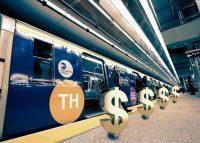Gov. Kathy Hochul is looking to get the Second Ave. Subway project back on track.
Hochul said on Nov. 23 that work on the project’s next phrase is “ready to go,” according to the New York Post. She spoke with reporters after touring a tunnel linked to the uber-expensive project.
“We still need to get the approvals,” Hochul said in reference to the MTA’s application for federal funding. “Our application’s in. We’re ready. If we get the approval in 2022, we’re ready to start.”
The MTA submitted a grant application for federal funding in 2018. The Post reported that then-President Donald Trump expressed support for the project, but left the grant application untouched, as has President Joe Biden’s administration. Democratic Sen. Chuck Schumer is among those looking to pull funds from the bipartisan infrastructure package.
The first phrase of the project opened up in 2017 after 10 years of construction. Expanding the Q train to 96th Street cost $4.45 billion, the most expensive subway project in city history. Hochul said the expansion supported about 200,000 riders before the pandemic, the Post reported.
Read more


As for the second phase, 16 blocks of existing tunnel will be used to extend the line another three stops to 106th Street, 116th Street and 125th Street.
Acting MTA Chairman Janno Lieber testified in front of the State Assembly on Tuesday, professing that the MTA is 18 months behind schedule on the $55 billion program.
This phase is expected to cost $6.29 billion, but Hochul said costs are piling up as the federal funding application goes unanswered.
“Lost time means more money,” Hochul said. “If this had started in 2019, if the Trump administration had not delayed it, if the money had been there … it would’ve cost less.”
The subway line extension is expected to serve 123,000 daily riders, an official told the Post.
[NYP] — Holden Walter-Warner
